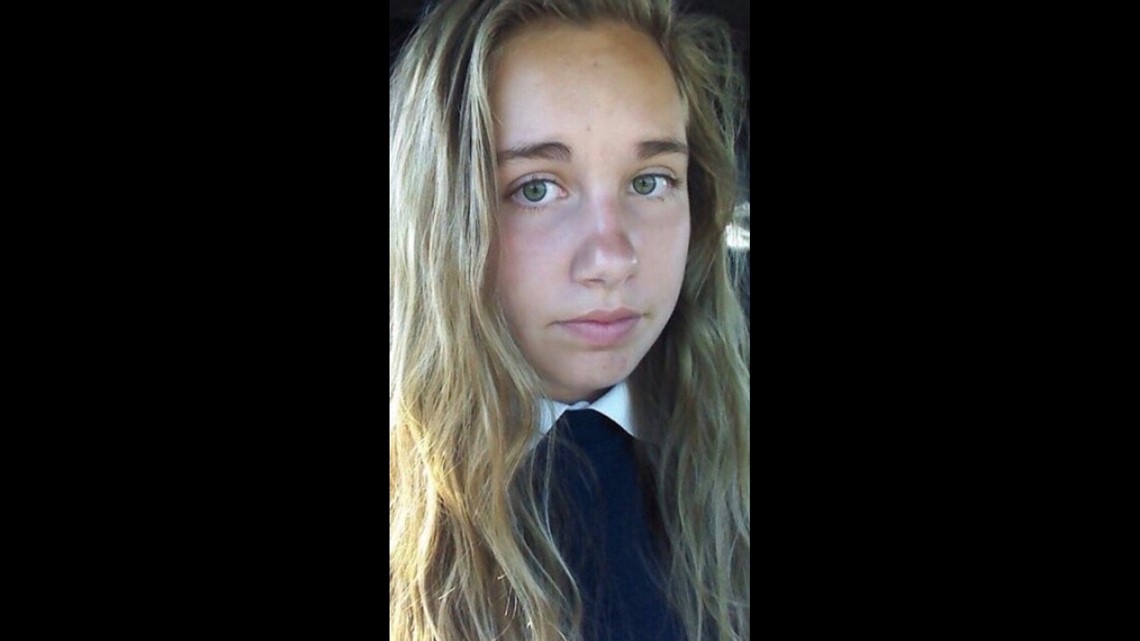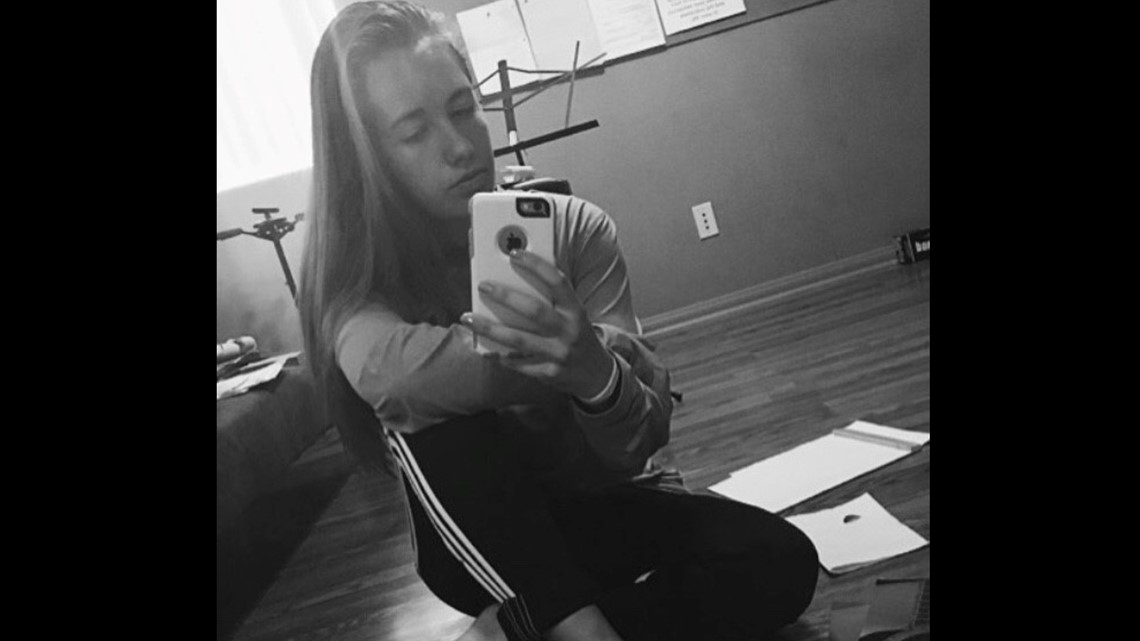SAN DIEGO — Content warning – this article discusses self-harm and suicidal feelings.
There's growing concern over the mental health of young people. According to the Centers for Disease Control and Prevention (CDC), teenage girls may be struggling the most.
"It started with the anxiety," said Christine Frey. "Mainly in 5th and 6th grade, discovering I needed to have control over my situation."
She was 11 years old when her mom, Debbie Dennison, realized something was wrong.
"We knew in 5th, 6th grade when she had trouble sleeping over at friends' houses. That became a pattern, and [at] midnight, or one in the morning I was getting phone calls," said Dennison.
Dennison said her daughter's anxiety got worse. She put her in counseling and therapy. There were ups and downs.
Frey began battling depression and cutting herself.
"I isolated. I withdrew from everything. I was always upset, always crying," said Frey.
"To see such a dramatic change in her behavior, she was the social butterfly and then all of a sudden she wouldn't raise her hand to answer a question in class," said Dennison.
While Frey was dealing with a lot of the same issues and pressures that many preteen girls face in middle school and just trying to find her place, she started hearing voices.
"I was not the kind of person to explain my problems," said Frey. "I wanted to keep them inside, be a strong figure."


In 2014, she wandered away from school during a psychotic episode. Her parents were frantic.
"It was probably the most difficult three hours of our lives. Going to school [and being told] 'She’s not here.' I said 'What do you mean she’s not here?"
Frey's dad finally found her wandering in a neighborhood.
"He cried for the first time ever in my life when he found me," said Frey.
She finally admitted to her mom: "I don't know if I can stop hurting myself."
"It's so difficult when your child is hurting," said Dennison. "You feel that pain, I think, incrementally more."
Frey was admitted to an in-patient hospital program for kids. At the age of thirteen, she was diagnosed with bipolar disorder. The now 21-year-old has been on medication ever since.


Dennison said it was very hard watching her daughter struggle.
"This was the quintessential perfect childhood, [she got] straight As, [she was in] sports, activities, church. Everything was perfect. It came as a shock," she said.
"It’s one thing [my husband and I] didn’t plan on, we didn’t think about. We didn’t think a child of ours would have a mental illness. It never even entered our mind," she added.
According to the CDC rates of suicide, self-harm, anxiety, and depression among young people began rising even before the pandemic. According to a CDC report, in May of 2020 emergency departments nationwide saw a rise in suicide attempts by kids 12-17 years old. From February to March of 2021, the number of cases involving girls in that age group was up 50 percent, compared to the same time in 2019. Meanwhile, there was a 4 percent increase for boys.
"Unfortunately, I’m not surprised," said Frey. "I’ve seen how difficult it’s become for young people. Social media is our new world."
WATCH RELATED: New parental controls coming to Facebook and Instagram
Frey said she struggled during the pandemic.
"When you feel that lack of motivation, socialization, just not enough connection," she said. "Sometimes those thoughts pop in your mind. 'Do I have worth here? Is there a point?'"
"I can be surrounded by a thousand people who care and somehow, I'll still feel alone sometimes," she added.
She made it her mission to help people like her. In 2018, she founded the organization Brain XP to change the language of mental illness into something more positive, and to let other young people know it's okay to reach out and ask for help. She talks at schools across the county.
She received an award by the National Alliance on Mental Illness (NAMI) and sits on local and state boards to help shape the conversation about helping kids deal with mental health issues.
Her videos on TikTok have thousands and even millions of views.
"[Teens] come to me as their support person. I’m not a mental health professional, I can’t provide everything for them. Sometimes all they need is a friend," said Frey.
One of the common things she hears is teens feeling as if no one believes them when they say they're struggling with their mental health.
"We have to erase the stigma so people will believe you when you're reaching out for help," said Frey.
Frey said she knows she's lucky to have a strong support system. Her parents have been with her every step of the way.
There’s no 'stop' and 'end.' It’s a journey," said Dennison. "I travel the journey with her."
They hope talking about their journey gives someone else the courage to do the same.
If you or someone you know needs help, there are several organizations that can help.

